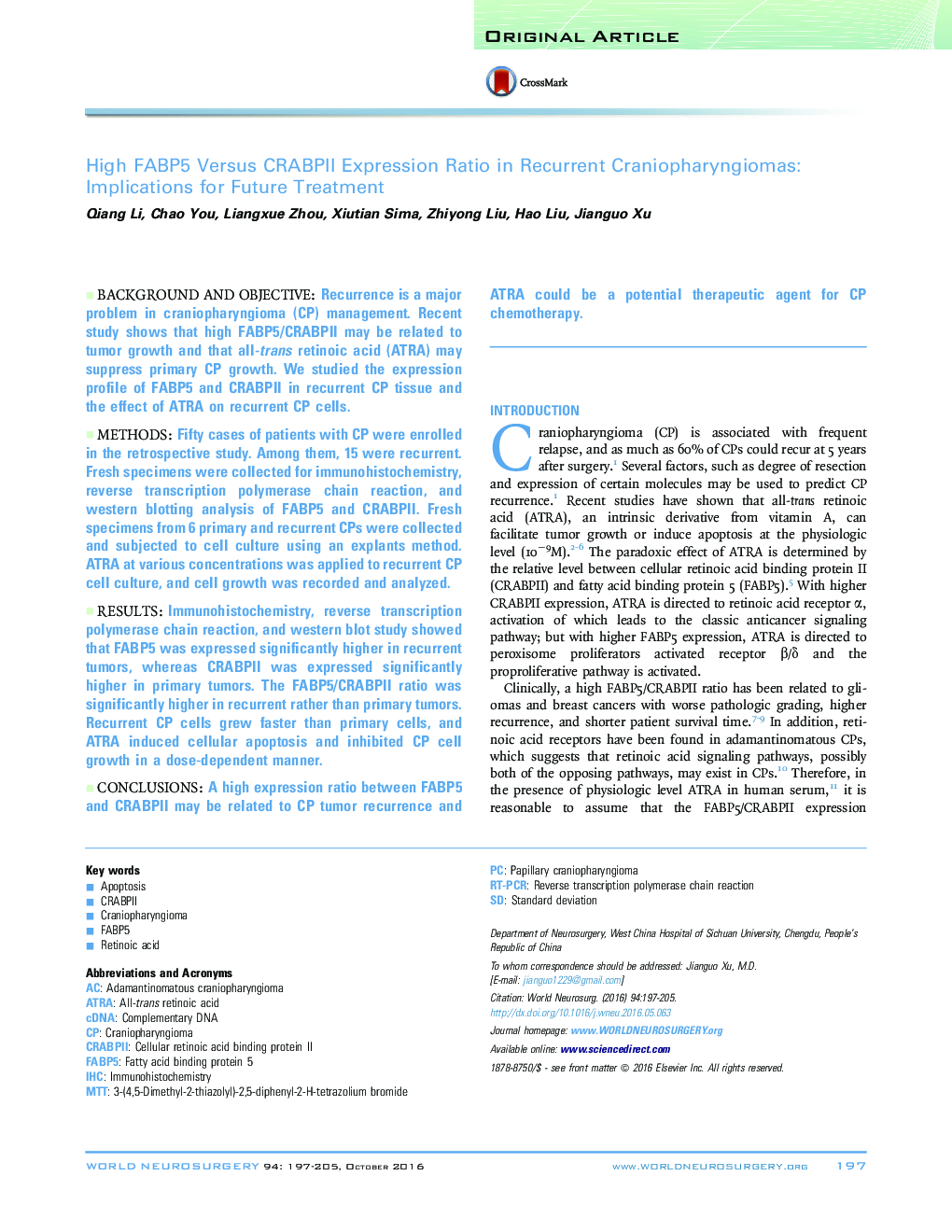| Article ID | Journal | Published Year | Pages | File Type |
|---|---|---|---|---|
| 3094602 | World Neurosurgery | 2016 | 9 Pages |
Background and ObjectiveRecurrence is a major problem in craniopharyngioma (CP) management. Recent study shows that high FABP5/CRABPII may be related to tumor growth and that all-trans retinoic acid (ATRA) may suppress primary CP growth. We studied the expression profile of FABP5 and CRABPII in recurrent CP tissue and the effect of ATRA on recurrent CP cells.MethodsFifty cases of patients with CP were enrolled in the retrospective study. Among them, 15 were recurrent. Fresh specimens were collected for immunohistochemistry, reverse transcription polymerase chain reaction, and western blotting analysis of FABP5 and CRABPII. Fresh specimens from 6 primary and recurrent CPs were collected and subjected to cell culture using an explants method. ATRA at various concentrations was applied to recurrent CP cell culture, and cell growth was recorded and analyzed.ResultsImmunohistochemistry, reverse transcription polymerase chain reaction, and western blot study showed that FABP5 was expressed significantly higher in recurrent tumors, whereas CRABPII was expressed significantly higher in primary tumors. The FABP5/CRABPII ratio was significantly higher in recurrent rather than primary tumors. Recurrent CP cells grew faster than primary cells, and ATRA induced cellular apoptosis and inhibited CP cell growth in a dose-dependent manner.ConclusionsA high expression ratio between FABP5 and CRABPII may be related to CP tumor recurrence and ATRA could be a potential therapeutic agent for CP chemotherapy.
